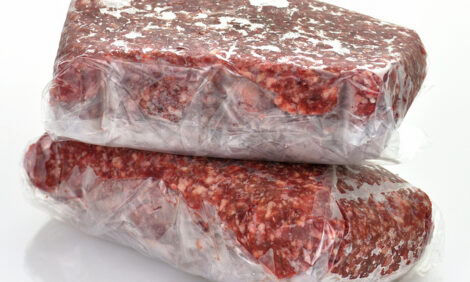



Pork Commentary: McDonald's Joins Gestation Parade
US - Last week the world’s largest fast food chain McDonald’s, announced that they wish not to purchase pork from sows raised in gestation stalls at some time in the future, writes Jim Long.No exact timeline has been established as McDonald’s is waiting for their pork suppliers proposed plans which they expect in May.
The Humane Society of the United States, a well organized lobby group intent on destroying intensive livestock production and have everyone eat lettuce was quick to respond. Wayne Pacelle, the HSUS President and CEO: "All animals deserve humane treatment, including farm animals, and it’s wrong to immobilize animals for their whole lives in crates barely larger than their bodies." Who could disagree with Mr. Pacelle, but as usual "whole lives" is far from reality. The truth is, this issue is never been anything but an innate desire of elite Washington based lobby groups intent on shaping the world into a vegetarian society while making a good living doing it. A vegetarian lifestyle is a concept contrary to centuries of human history. We believe in liberty and choice. Vegetarians can eat only lettuce if they wish but the moralistic and legislative attempts to shape society to their own vision is misplaced. Thankfully this elitist minority has little sway in most of the world. Global meat consumption is the highest in history. As peoples income rise the desire for meat is magnified.
Cost of Gestation Change
We expect the gestation stalls will be gone in the future. The cost to change to other types of housing will be significant. In Spain the estimate to change per sow is $300- $400 US per sow or one billion dollars for the 3 million sows. The US is about 6 million sows, that’s two billion dollars if all changed. (some are already done) All these costs increase cost of production.
In the US egg industry when more space was mandated in cages, the number of laying hens declined and egg prices increased. The same could happen with sows. It takes more space to have sows in pens. Same barns, less sows, the results could be a cut in hog production.
As a concept group housing - ESF Sow Systems and group sows work. Genesus has several customers with high productivity using such formats with one herd over 31 pigs weaned for the calendar year 2011. Also Genesus Genetics are being exclusively used at the National Centre for Livestock and the Environment, a $15 million dollar facility in Manitoba with a major research component in ESF and Group Housing. The future always leads to change, and we must get ready. Our concern is not about sow housing in the future but the assault that intensive livestock production is facing by the vegetarians who use it as a moral front to justify their quest for societal change through legislation.
Observations
July lean hogs closed at 99.75 on Friday, Aug at 99.725. The smart guys in Chicago obviously think hogs are going to be strong this summer. There is still upside to these prices in our opinion. Low cattle numbers, less chickens, strong pork exports and little change in swine production over the next few months is a recipe for even stronger prices. We won’t be surprised if the hogs touch $1.10 lean a pound. Producers could use it. From what we can figure most producers have not back filled the equity hole that was created in past years.
The feeder pig market is one that has little control. It is an emotional, truly supply and demand equation. No one controls it and the number of buyers and sellers keep it fragmented. Last week USDA 40lbs cash feeder pigs reached $94 with the average $85.38. Strong, strong prices. It tells us producers are voting with their own money that lean hogs will be high this summer.
Canada January Swine Inventory
Statistics Canada released its January list inventory this week, no big surprise. The sow Inventory was at 1.29 million down 1,000 sows from a year ago. Total other hogs were 10.708 million up 126,000 from the same time a year ago. Canada’s production has been standing still since the breeding herd declined 20% (-300,000 sows) in the past few years. We expect little change going forward either up or down. No one will build a new sow unit in the for-seeable future, Canada’s costs with a par dollar to the US puts Canada at a cost of production disadvantage and this coupled with the fact market hogs brings lower prices compared to the US market. No sow herd growth.
Bottomline: No more hogs from Canada is supportive for Canada-US and world Hog prices.







